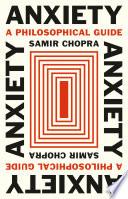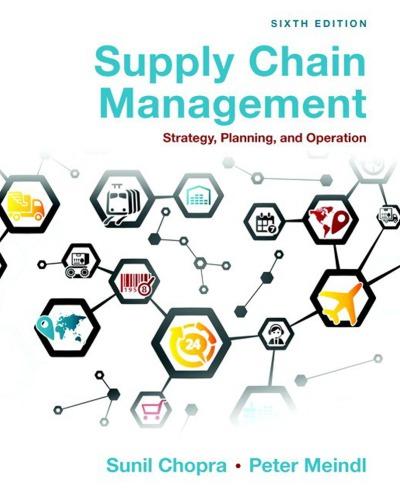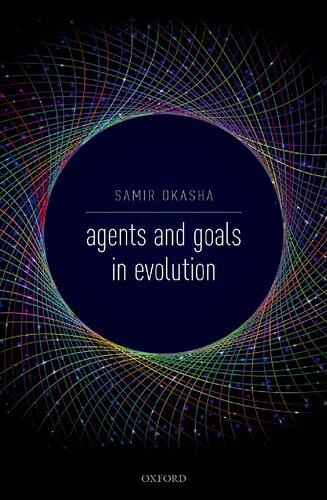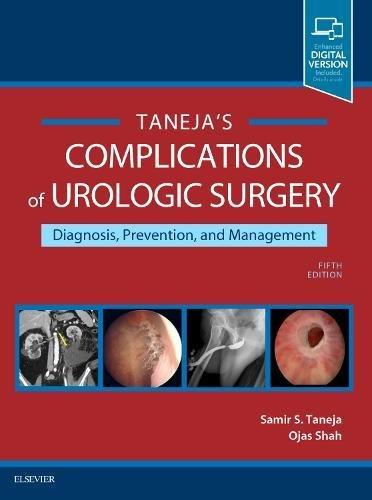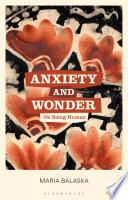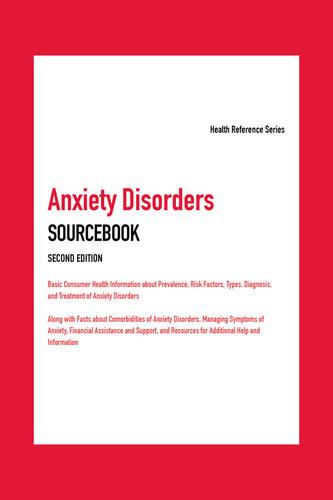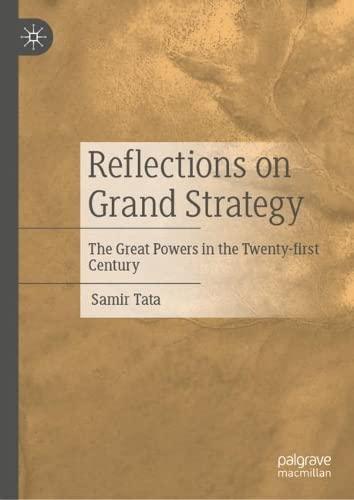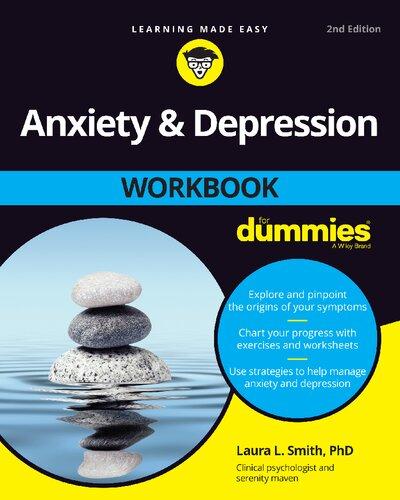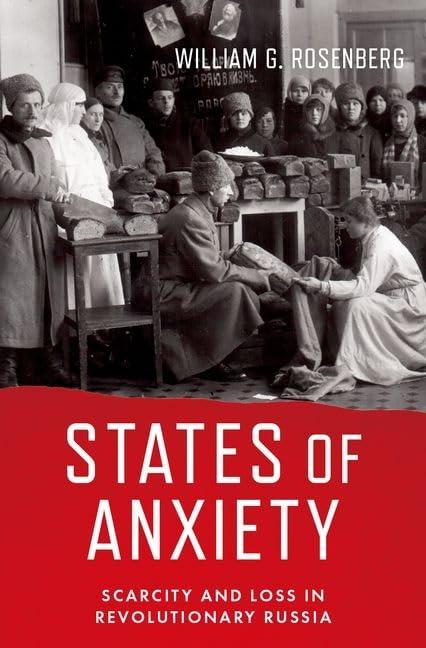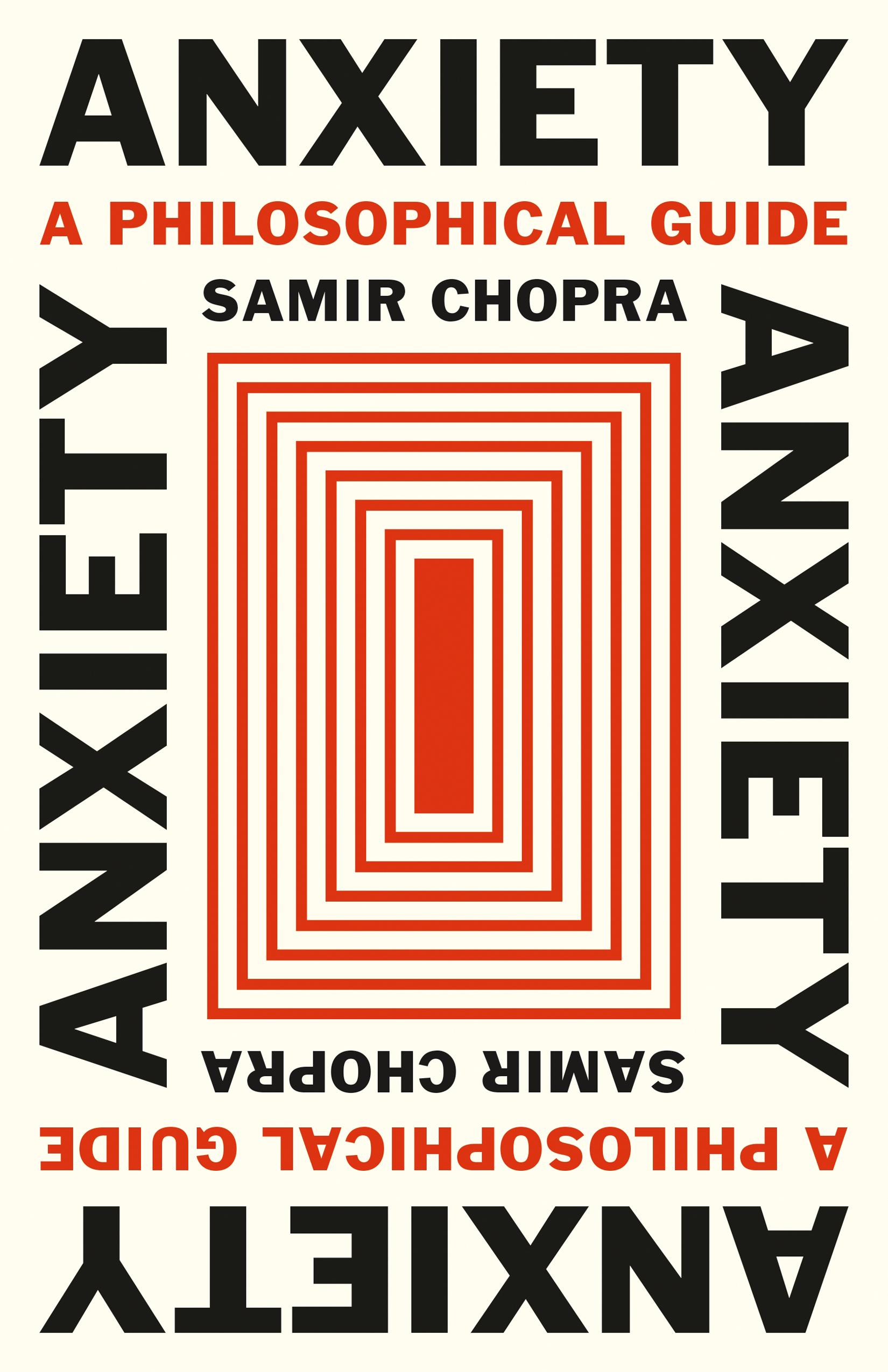ANXIETY A PHILOSOPHICAL GUIDE
SAMIR CHOPRA
prince ton university press
prince ton & oxford
Copyright © 2024 by Princeton University Press
Princeton University Press is committed to the protection of copyright and the intellectual property our authors entrust to us. Copyright promotes the progress and integrity of knowledge. Thank you for supporting free speech and the global exchange of ideas by purchasing an authorized edition of this book. If you wish to reproduce or distribute any part of it in any form, please obtain permission.
Requests for permission to reproduce material from this work should be sent to permissions@press.princeton.edu
Published by Princeton University Press
41 William Street, Princeton, New Jersey 08540
99 Banbury Road, Oxford OX2 6JX press.princeton.edu
All Rights Reserved
ISBN: 9780691210674
ISBN (e-book): 9780691246130
British Library Cataloging-in-Publication Data is available
Editorial: Rob Tempio and Chloe Coy
Production Editorial: Jaden Young
Text and Jacket/Cover Design: Karl Spurzem
Production: Erin Suydam
Publicity: Alyssa Sanford and Carmen Jimenez
Copyeditor: Kathleen Kageff
This book has been composed in Arno Pro with Franklin Gothic Std
Printed on acid-free paper. ∞
Printed in the United States of America
9 8 7 6 5 4 3 2 1
For Noor and Ayana, who delivered me from fear
All existence makes me nervous.
kierkegaard
O the mind, mind has mountains; cliffs of fall Frightful, sheer, no-man-fathomed.
gerard manley hopkins
He hath heart who knoweth fear but vanquisheth it; who seeth the abyss, but with pride. He who seeth the abyss but with eagle’s eyes—he who with eagle’s talons graspeth the abyss: he hath courage.
nietz sche
The ultimate task of therapy . . . is to help patients reconstrue that which they cannot alter.
irvin yalom
ACKNOWL EDGMENTS
Without whom, not: Noor Alam, Sumbul Alam, Bradley Armour- Garb, Will Braun, Justin Caouette, Akul Chopra, Ashutosh Chandra Chopra, Ayana Prabha Chopra, Prabha Chopra, Pramod Chandra Chopra, Ritu Chopra, Skye Cleary, Chloe Coy, Japhy Dhungana, Sam Dresser, Christian Fox, Nick Gibson, Ken Haller, Martin Harvey, John Hauck, Lynn Hill, Hermione Hoby, Emma Hulme, Rob Israel, Kartik Jaggi, Kathleen Kageff, Marilyn Komisar, Ray Kozma, Ben Kunkel, Robert LeClair, Jacob Leivent, Chris Letheby, David Makowski, Gordon Marino, Eric Martin, James Martin, Brad Mering, Rohit Parikh, Nash Redmond, David Rondel, Luis Ruiz, Sunayna Sabharwal, Sanjay Sen, Robert Smith, Justin Steinberg, John Tambornino, Matt Thomas, Priya Tuli, David Turnbull, and Bill Wright; the Seize the Moment Podcast, the Ant and the Grasshopper Podcast, and the Denver Crux Podcast; the Institute for Contemporary Psychotherapy; my fellow philosophical counselors; those who placed faith and trust in my counseling, shared a rope with me, or gave me a belay. I owe par tic u lar thanks to Noor Alam, Jennifer Fisher, Eric Martin, David Rondel, and David Turnbull for close and exacting reading of my draft manuscript; and to Rob Tempio, my editor at Princeton University Press, who proposed this project, shepherded it through its many stages, and stayed with me. Thanks, Rob; you made me a little less anxious while I wrote this book.
OUR AGE(S) OF ANXIETY
Every book on anxiety must, perforce, begin with a list of broad sociological observations and statistics, each showing just how common suffering from anxiety is in contemporary society, and moreover now, how ordinary a fact it is to be medicated, formally or informally, for it. In such fashion are we confronted with the dreadful persistence of anxiety, a seemingly ineradicable aspect of the human condition, for the historical and cultural record of our civilization reveals each human generation has found itself afflicted with forms of extreme anxiety, its peculiar manifestations and expressions characterized by its attendant material culture and circumstances. Sometimes, in reading older descriptions of states of mind evoked by legendary social, cultural, and political crises and comparing them to those reported by our fellow citizens during their tribulations, we notice archaic anx ieties have found distinctive, contemporary expression in this era. Many ages have proclaimed themselves a “zenith” of “cultural anxiety,” or an “unpre cedented” age of anxiety, whether the thirties, the forties, the fifties, the sixties, the noughties; each age imagines—in a distinctive form of rueful self- anointment— that its material, social, and political circumstances have elevated our simmering unease with the very fact of existence into an all-consuming
2 Our Age(s) of Anxiety
terror. Every age of man, it seems, is an “age of anxiety”; every age plays host to its idiosyncratic monsters of “dread” and “angst” that cloak dimly understood primeval anx ieties in their novel garb.
While fear and worry appear grounded in specific objects and circumstances, anxiety is inchoate, a formless dread, a “fear of nothing.” Why do we feel it, and must we suffer it? In response, different ages have characterized anxiety differently: as a spiritual crisis of faith, belief, and meaning; a cognitivebehavioral construct resulting from conditioned responses to man’s physical and social environments; an animal instinct limited to creatures with a temporal sense who anticipate their own deaths; a response to material stress or society’s sexual repressions; a medical affliction of faulty neurophysiology, a problem exclusively of our biology and physical architecture. The Freudian psychoanalytic understanding, equipped with its theoretical notions of the unconscious and a tripartite mind, treats anxiety by resolving inner psychic conflict; contemporary psychiatry and neural science isolate and modify anxiety’s biological mechanisms, while philosophical and contemplative traditions seek the meaning rather than the mechanism of anxiety for its sufferers.1 Anxiety’s sufferers possess an awareness of finite time as past, present, and future, and the fear of unspecifiable future pain or suffering; anxiety is part biological dysfunction, though the causal link between biology and anxiety remains unclear and unspecified; it is partly a function of our natural and built environments, of the primacy of nurture versus nature; it may indicate an acute spiritual crisis for the believer, a failure to come to terms with faith and the demands of existence; it may be an indicator of a riven and disunified mind haunted by its past; it may be the symptom of an oppressive,
alienating culture and society; it may be the very nature of human consciousness.
Anxiety appears to be a universal, perennial human condition, one that remains, despite the impressive onward march of well-funded empirical psychology, pharmacology, and neurophysiology, an equally impressively mysterious phenomenon, one not easily accommodated in, and by, scientific paradigms and frameworks. We do not quite know how and where to slot anxiety in; to pretend other wise is to be like Sigmund Freud’s “wayfarer,” who “whistles in the dark” but does not see any the better for doing so.2 Anxiety’s very diversity, its seemingly disparate causes, its manifold complexities and manifestations, reminds us human beings are complex creatures, not mere biological automatons, not creatures exclusively of nature or nurture or class relations or race or gender identities. Anxiety is a frightening reminder we are complex beings not easily resolved into the atoms of our favorite theories.
Our age is perhaps especially anxious because it must confront the technical and material optimism and accomplishment of our times with the sinking feeling that none of it matters very much. The prosperous and power ful are still struck down in midflight, amid their fame and fortune; they can afford expensive doctors, and their lifespans are longer and more comfortable than those of the plebes; they can flee from climate change in their private planes as they outrun a hurricane or a flood; but they, and their loved ones too, succumb just like the rest of us, to cruel misfortune, to biological time bombs of ge netic dysfunction, and to terrifying eventuality; they too, receive news of, and bear witness to, the suffering and death of all those they hold near and dear. Upward mobility, “societal success,” may enable some to buy their children the best clothes,
the best Ivy League education, to arrange for expensive pianoforte lessons, but it cannot protect their most precious possessions against a drunk driver, a plane crash, a fatal disease like a pediatric cancer, creeping climate change, or worst of all, a neuroticism and rejection of this world that manifests itself in acute mental illness, psychopathology, or the self-extinction of suicide. The persistent, nagging realization that our technical and material mastery of nature, our economic power, and our scientific prowess leave our fundamental existential predicaments of mortality and limitation as before is good cause for growing terror; there is “no exit.”
Our contemporary perplexities are greater, for we have been fed a diet of progressive and optimistic claims about the unstoppable onward march of science through mental and physical realms and the relentless technological progress toward imagined utopias of plenty; and yet, we still feel an instant regression to profound anxiety at the slightest intimation of mortality: perhaps because, as a well- underway climate change catastrophe suggests, we have realized that these dreams of material advancement, of the mastery of nature, are our nightmares too, driving all we hold dear—like clean skies, drinking water, our children’s futures—to the brink of disaster; or perhaps because those modern electronic communication tools, our indispensable playthings, which were supposed to increase mutual knowledge, political empowerment, and empathy, have instead generated political and intellectual dysfunction, and propped up the powerful all over again. Perhaps it is because we sense that no matter how great our mastery of techniques that enable us to polish and buff our material exteriors, we remain in our psychic interiors the same old fearful, uncertain, and anxious creatures.
This ubiquity, this persistence, this presence, provides a clue to the nature of anxiety, its place in our lives, and what we may do about it.
Anxiety bears an acute relationship to philosophy, the oldest of human preoccupations; we are driven to ruminate, to introspect, to philosophize, because we are curious about what afflicts and torments us even when no apparent threat is visible, about why, despite our greatest material successes and comforts and lofty intellectual endeavors, despite achieving all we were expected to, we remain anxious and fearful. Considering philosophy to be a resource for anxiety is unsurprising because the philosopher, the lover of wisdom, the archetypal wise person, has long been considered a doctor of the spirit and soul—a “psychotherapist,” a healer of the psyche, in the precise etymological sense—an ancient analogy dating to the dawn of the philosophical tradition.3 Philosophical treatments of afflictions of the soul require metaphysical and moral self-examination, self-discovery, and self-acceptance: philosophy directed at oneself.
But anxiety is not merely a problem for which philosophy offers a solution, an affliction for which philosophy offers a cure. Rather, anxiety and philosophy are intimately related; anxiety is the very “loam” from which philosophy springs and blossoms,4 for a distinctive form of anxiety, as evinced in philosophical inquiry, is a fundamental human response to our finitude, mortality, and epistemic limitation. Inquiry—the asking of questions, the seeking to dispel uncertainty—responds to this anxiety. The inquiring, questioning, philosophical being is, in a crucial dimension, the anxious being. Anxious creatures philosophize for
they are dissatisfied, not content with what they know and believe about the world; they seek to inquire, to remove doubt. What is the nature of our being? What kind of world is this? Is it one in which good is rewarded? Will happiness be realizable in this world? Is this world all there is? What is the nature of the otherworld, the afterlife? What do we not know? Can we ever be certain? Are there truths we will never know? Ethical inquiry reveals an acute moral anxiety: Am I doing the right thing? What is the right way to treat others? To live? What if I do not get this right? Our “love of wisdom,” our “philo-sophia,” is great, but it is not mere idle curiosity that drives it; the answers we seek are remedies for a sense of wonderment and awe tinged with terror. Deep unanswered questions in philosophy, ones to which we sense our answers have immense importance, carry with them great anxiety about the possibility of the “incorrect” answer. Even if anxiety, or “angst,” or “dread,” or “anguish,” is formally named only in the nineteenth century, we can recognize its affect earlier in philosophical writings: a philosopher may describe a species of suffering—spiritual, moral, epistemic—recognizable as anxiety; it lurks between the lines of many expressions of perplexity and awe and uncertainty in the philosophical corpus. And as philosophy paid attention to those who philosophized and not just the doctrines they produced—what did the inquirer feel as she raised these acute epistemic, metaphysical, and moral questions?—anxiety became a philosophical problem in its own right, soon to be understood as an indelible feature of human existence, a constitutive component of human consciousness.
In this work, drawing on the claims of the ancient and modern philosophical traditions of Buddhism, existentialism and
existential theology, psychoanalytic theory, and critical theory, I aim to provide a philosophical guide to anxiety. As my list of sources indicates, if we do not accept a traditional— and academically and professionally self- serving— trifurcation between psychology, philosophy, and religion, then the range of philosophical speculation about anxiety is increased, for many religious or spiritual injunctions and prescriptions to seek relief from anxiety are philosophical ones in both form and content, and many psychological cures for anxiety are also, in both their foundations and their modality of treatment, philosophical ones.
The debate over what anxiety is is not insignificant in the currency of our culture: if deemed a biological and medical phenomenon, a problem of rewiring brains and altering chemical imbalances, the neurophysiological and psychiatric professions stand to gain in intellectual, cultural, and financial capital; if found to be a psychological and behavioral notion, then psychotherapists, clinical psychologists, and sundry counselors and therapists do.5 My intention here is to point to those philosophical understandings of anxiety that concentrate on the human suffering of anxiety and seek its meaning, and do not seek to reduce it away by suggesting our anxiety is “nothing but X.” To tell a patient of anxiety that their suffering is but a physical dysfunction is to do nothing to understand the meaning and significance such dysfunction could have for the sufferer.
What does it mean to provide a philosophical guide to anxiety? First, this is an introduction to philosophical theories of anxiety, to what (admittedly, some selected male) philosophers have said about anxiety, hopefully translating their seemingly esoteric concerns into everyday ones, and indicating how to live with it by understanding the role anxiety has in the human condition. The philosophical reflections that the Bud dha, Friedrich
8 Our Age(s) of Anxiety
Nietzsche, Søren Kierkegaard, Paul Tillich, Martin Heidegger, and Sigmund Freud offer us suggest that to be anxious is to be human and that to be human is to be anxious. Here, anxiety is not always a pathology to be eradicated but often an ineluctable and indispensable part of ourselves; to be anxious is to receive confirmation of our humanity and personhood, an understanding of our place in the world. We are anxious because we are a par ticular kind of entity, placed into a very par ticular relationship with the rest of the cosmos. Understanding the nature of our being, and of this relationship, is key to understanding the nature of our anx ieties; and vice versa, for understanding our anx ieties is to aid our understanding of our being.
In my writing, I will move along a fourfold front. First, I will consider Buddhism as a species of ancient philosophy, selfconsciously understood as medicine or therapy, that suggests human anxiety is founded on a deep misunderstanding about ourselves and our natures; our anxiety, which is a species of existential suffering, is undesirable and can and should be eradicated, even though the path to get to that desired end point is long and arduous and requires us to live with and confront anxiety along the way. Second, I will examine the works of some representatives of the nineteenth- and twentieth- century European existentialist tradition who suggest anxiety is the hallmark of freedom and authentic existence and is a privileged gateway to self-discovery and knowledge; we must find a way to live with our anxiety, and indeed, welcome our struggles with it, for the alternative is an inauthentic life lived in “bad faith” where we play at living this life rather than seizing it. Third, I will consider Freudian psychoanalytic theory, which suggests, too, that anxiety is an integral and unavoidable part of the (civilized) human condition, but which locates it proximal to, and as a signal of, external and internal repression and psychological
conflict; the repression and the conflict must be acknowledged and integrated into our sense of who we are. Last, I introduce the notions of “materialist alienation” found in the writings of Herbert Marcuse and Karl Marx, who suggest anxiety is a human response to the dehumanizing and alienating material conditions of social life; rather than accepting it, we should strive to (sometimes radically) change the social, political, and cultural world to reduce its anxiety-creating role in our lives. Anxiety arises from who and what we are, how we choose to organize our societies, how we treat others and expect to be treated in turn; a philosophical understanding of anxiety, then, is an existential, political, and moral philosophy.
Bringing these four perspectives named above to bear on anxiety allows us to make the case that anxiety can and should be “cured,” but only in a par ticular way, while we remain appropriately evaluative and skeptical of the man-made forces that conspire to keep us anxious. The bare facts of mortal, limited existence make us anxious and always will, but we do not have to exacerbate our suffering by our reactions to it, or by the social arrangements we construct for ourselves. With this philosophical attitude, we can acknowledge that anxiety is a problem and yet find a measure of acceptance of and resistance to it.
In providing a guide to philosophical theories of anxiety, I will also—implicitly—be describing how to use philosophical method of some sort to resolve our suffering of anxiety. Among these resources is a reconceptualization, a recasting of anxiety, via a new philosophical understanding: we re-cognize our fearful, mysterious anxiety, make it comprehensible, understand it differently, through the acquisition of a novel philosophical vision; philosophy can help reclassify anxiety as not a mere pathology but as an essential component of human consciousness, one to be reinterpreted and integrated into our lives. To
philosophize about anxiety is to think about it, to reflect on it, as opposed to merely reacting to it, or suffering its symptoms; to philosophize about anxiety is to make it possible that we can change the nature of the beast that lives within us because we understand its presence and its role in our lives differently. The result of frank inquiry into our anxiety (and anx ieties) can be a heightened awareness of our life and its par ticular and peculiar challenges, blessings, heartbreaks, and unredeemed promise, bringing about an acute reckoning with the possibly flawed choices, decisions, and actions that have brought us to life’s passes; the resultant introspective suffering promises us greater self-understanding and self-acceptance.
The terrible anxiety disorders and panic attacks that many suffer appear impervious though, to philosophical reflection; they seem impervious to reasoned argument and to claims that suggest our anxiety is an essential or unavoidable component of ourselves. To those who suffer so, the suggestion that anxiety might be not pernicious would be offensive; and indeed, the kind of philosophical reflection promulgated here needs, at the least, a mind not afflicted by pathologies that render other wise clear thought incoherent. For those who suffer in this fashion, anxiety feels like an outsider, a presence that must be banished before their minds can address life’s other pressing demands. And yet, even “effective” antianxiety medication cannot ameliorate the fundamental existential anxiety (and its variants) described in the pages to follow.
Merely reading sympathetic exegeses of philosophical doctrines, of course, will not result in you putting this book down and saying, “I get it; I do not feel anxious anymore”; a potentially therapeutic philosophical doctrine must make sense emotionally and intellectually too. That happens when there is a measure of congruence between the way you have lived your
life and understood and interpreted it, and the way you understand the philosophical claim directed at it. And so, what might happen instead if you think through the claims made in this book and revisit them, even during moments of anxiety, “working through” them, is that you might understand and thus experience your anxiety differently. And to understand our anxiety, we must experience it not as we are trying to push it away, but as we are trying to inspect it, to see what it “points to.” This means that analogizing philosophy to medication can take us only so far, for whatever philosophy is supposed to do for anxiety, it is not there to cure it. But it can offer understanding, and thus a displacement and possibly a dissolution of the problem: what appears to be a problem is no longer one because in the process of reinterpreting it, we have changed its identity and nature. If we come to understand our anx ieties differently, we may find we can live with them; we may come to understand ourselves and our preoccupations a little differently, an impor tant contribution to “the examined life,” one worth living.
When we examine the histories of the world’s greatest psychotherapeutic traditions—psychoanalysis and existential psychotherapy being prominent examples—we find them grounded in philosophical reflection about the human condition; their endeavors are armed with a set of philosophical presumptions and axioms about the human mind and its pathologies. No pioneer in these fields is philosophically unsophisticated in their writings and reflections (the prime example being Freud, of course), and neither are they apol o getic about the philosophical foundations they rely on in their therapeutic theorizing. For evidence of the importance of philosophy to modern
psychotherapeutic modalities, consider “cognitive behavioral therapy,” which claims that the ways in which we think, feel, and behave are not intrinsic to us, but are instead the result of an ongoing, continuing, learning and conditioning process. 6 Within this understanding of psychological dysfunction, persistently “faulty” patterns of thinking and belief formation and revision lead to untenable conclusions and patterns of behav ior, which might make us and those who love us unhappy, depressed, and anxious. In response, a species of “intellectual virtue theory,” as it were, aims to make us reason better, to help us entertain the “appropriate” emotions guided by the “correct” beliefs, those that “work for us” given our “life goals.” Cognitive behavioral therapy is an example of a philosophical method overtly inspired by the ancient philosophical traditions of Stoicism, Buddhism, and Taoism7 pressed into service for the treatment of psychological disorders. Its track record in treating anxiety and depression is impressive; the best clinical empirical outcomes in these domains of psychotherapy are often reported from cognitive behavioral therapy.8 That a species of “cognitive therapy”—which treats the interpretation of our beliefs and the disruption of pernicious patterns of thinking as key therapeutic maneuvers—is an impor tant and often effective treatment in the realm of clinical psychology, and the foundation of a species of philosophical counseling,9 should establish a prima facie case that philosophy and philosophical reflection have a role to play in ameliorating anxiety—as philosophical writings on anxiety so keenly show.
Philosophically understood, anxiety is a constitutive aspect of the human condition, an inevitable response of human consciousness to existence; while the causes of and triggering events for kinds of anx ieties vary, we will always find occasion to be anxious. Indeed, if we did not, we might well suspect
Age(s) of Anxiety 13 ourselves of being “abnormal”—for to feel anxious is the “normal” state of humanity. We will always be anxious, but we do not have to be anxious about being anxious. This claim, I will argue, mostly by pointing to other philosophers’ writings, is empowering rather than debilitating. Anxiety, like so-called addictive behav iors, is not intrinsically a pathology or a disorder. When it is, it is because it has interfered with the kind of life we want to live; but even if we are living the life we want to live, we will find we are not anxiety-free and that reflecting on our anxiety may help us uncover clues to the life we want to continue living.
Those who study anxiety across various disciplines often complain the term is used to describe wildly disparate phenomena: feelings, behav iors, moods, and brain states themselves (the clinical psychologist wants no confusion between her named disorder and the existential mood!)10 The infamous Diagnostic and Statistical Manual of Mental Disorders (DSM), the handbook of practicing (and prescribing) psychiatrists, has many afflictions lumped under the category of “anxiety disorders” including “posttraumatic stress disorder,” “panic attacks,” “obsessive-compulsive disorder,” each defined by a hopefully characteristic cluster of symptoms and medicated accordingly. As you read on, consider what you take your anxiety to be and how it manifests itself and how and when the philosophical analyses described here resonates with your own personal experience of it; linguistic and definitional precision is neither necessary nor desirable; what truly matters is your felt experience and understanding of anxiety. Existential, psychoanalytic, or materialist anxiety may seem unlike the affliction named “generalized anxiety disorder,” but thinking through the disorder’s symptoms and experiences when attached to individual lives may show that the named disorder is the way in which
your distinctive version of “philosophical anxiety” finds expression in your life and being.
Those who philosophize often call on philosophy— unapologetically—as a form of therapy, as an aid to navigate life’s uncertain contours and trajectories. Reading what philosophers have to say about anxiety will not remove anxiety from our lives, but we may come to understand why we are so anxious, so often, and how anxiety helps us know ourselves. By philosophical reflection on the nature of anxiety, we may obtain an understanding of anxiety and our intimate relationship with it and thus, a measure of acceptance of ourselves. We cannot stop being anxious, but philosophy can help us not be anxious about anxiety.
“A tear is an intellectual thing”;11 so too is a fear, a joy, a regret, an anxiety. But intellects and their complexities are not disembodied entities separable from humans; they are wedded to very par ticular lives. In this work, I describe, too, my personal relationship to anxiety by way of the study of philosophy and personal philosophical reflection on the role anxiety has played in my life. I will make note of my encounters with anxiety via the perspectives of my history of familial bereavement, my psychotherapeutic sessions, and the relief I experienced on encountering philosophical thought. The most important discovery in this psychotherapeutic and philosophical self-examination was that I had not become anxious because of the trauma of personal loss; rather, I had always been anxious and always would be. I could not therefore be cured, but I could recognize and accept the man in the mirror; my anxiety made me who I am, and I could not get rid of my anx ieties without ceasing to be myself.
My personal experiences, my self-indulgent invocation of memoir in the pages to follow, are hopefully of use then in seeing how one person has lived life in response to philosophical claims about anxiety and worked them into their conception of themselves; my life’s particulars will differ from yours in significant ways, but hopefully, because we are both human, we will find enough commonality to enable an empathetic bond between us. The bridge we build between philosophical doctrine and our lives depends on the particulars of the individual life, so the way you approach these doctrines depends on your distinctive species of anxiety and your personal interpretational narrative of your life.
In what follows, I hope to point to a path of greater understanding of anxiety and of yourself in turn. This book is an invitation to reflect, to reconsider and reconceptualize anxiety. I promise no cures, because I cannot; I can only offer the thoughts of others like you and me, fellow human beings, in the hope we may find we are not alone in our anx ieties. Our suffering is a mark of our humanity, a sign of our membership in the community of humans.
